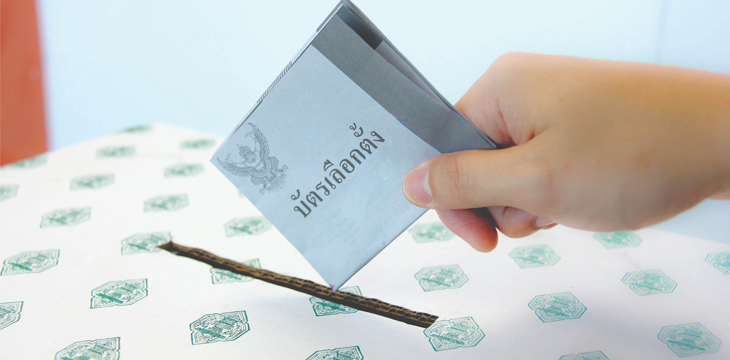|
Getting your Trinity Audio player ready...
|
Thailand is hoping to make voting easier and voting fraud a thing of the past, by introducing blockchain technology to its voting systems.
The Bangkok Post reports the National Electronics and Computer Technology Center (NECTEC) of Thailand has developed the technology to be deployed as Thais become increasingly more tech savvy and online. As 5G technology starts to roll out to the country, NECTEC expects all votes will be counted with the new technology.
Chalee Vorakulpipat, head of the cybersecurity laboratory at NECTEC, sees it as more than just making voting easier for the citizenry. He said, “NECTEC developed blockchain technology for e-voting that can be applied to national, provincial or community elections, as well as business votes such as the board of directors. The goal is to reduce fraud and maintain data integrity.”
The end-to-end system is explained pretty well. Election controllers can identify voter qualifications, who are verified by mobile camera. Voters can then vote through email. Vote counts can then be done as soon as polls close, and candidates can monitor their totals. As each step is registered in the blockchain, the potential for voter fraud and vote counting hijinks are reduced to negligible levels.
Chalee also sees huge savings in labor costs, as election monitoring employees are largely made obsolete, and physical transportation of votes is made unnecessary.
As reported previously, Thailand is an enthusiastic adopter of blockchain technology, already considering its use to streamline their value added tax collection systems. They are also not the first country to consider applying it to elections, as South Korea’s election commission is looking into its use for nearly the same purposes, and West Virginia tested blockchain voting with overseas troops.
The technology is ready to go, but needs to be tested first. NECTEC is currently looking for university partners to help create test environments. Beyond that, it likely won’t see large scale use until the government can be assured that all citizens will have access to a device from which they can vote with.

 02-26-2026
02-26-2026 




